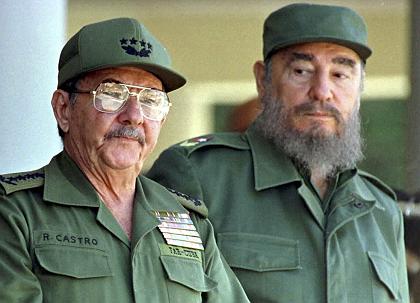Last week, Cuba held a historic party congress designed to reshuffle the politburo and pave way for what many experts are calling the Chinese model. One thousand communist delegates convened were at hands for the event. From Havana, observers called the congress a turning point of the Cuban revolution. At the center of it all, stood President Raul Castro. In the past, the Congress had one major task; that was to select a new Communist Party leadership. Of course, Raul Castro was named to succeed his brother as First Secretary, but the story didn’t end there. Naming the number two was what made the gut wrenching suspense. The reason was that the party leadership is made almost entirely of the old guard—romantic revolutionaries from the Sierra Maestra who swore to uphold the communist manifesto to their graves.
As the old guards are slowly fading from the scene, new younger faces with the same revolutionary romanticism are required. It took some hectic hour to find out who was going to clinch the number 2 post.
At the opening session, President Raul Castro delivered a nearly 3-hour speech in which he outlined the problem facing the Cuban society and he offered possible solutions to solve them. According to the Associated Press, Raul’s speech has raised speculation that the position will go to a younger person, and already some names have rumored to be in a short list, like Lazaro Exposito, the fast-charging Communist Party chief in Santiago de Cuba, or Marino Murillo, the former Economy Minister who has been promoted to a position that puts him in charge of implementing the economic reforms.
Arturo Lopez-Levy, an economist who left Cuba in 2001 and is now a lecturer at the University of Denver, claims that “Raul Castro’s recommendation … to adopt the principles of term limits represents an historic step toward the creation of institutional and collective forms of leadership.”
In a laundry list of things to change enumerated by Raul during the speech, some of them are very sensitive issues. Among them are the elimination of ration books and other subsidies, the decentralization of the island nation’s economy and a new reliance on supply and demand in some sectors.
Many experts believe that the Caribbean nation with its revolutionary silver coat is heading down the Chinese path, promoting a capitalist style economy safeguarded by Marxist principles. No one knows for sure if this model can work. The Chinese experience is still what it is: an experiment. For sure, the Cubans have the discipline to usher economic successes, should they decide to go down this road; but success cannot be achieved without foregoing basic socialist principles. That is a major obstacle and it is also the subject of serious debates in most revolutionary venues of the world. Capitalism, which is based on profit and outright individualism, is incompatible with socialism—a system based on social equality and justice for all.
The social safety net that China took years to build is now unraveling, giving way to full scale market profit, thereby widening the social gap. It is NOT possible to maintain social equality and thrive toward the pursuit of happiness while building a new class of entrepreneurship. It is human nature. What was vehemently despised in the 1950s is now being promoted.
Jacob Davis, editorialist for The Morning Eyes claims that “China over the last twenty years has made inroads in industrial development, and the country is now poised to top the United States as the world’s richest nation. But all this happened at a price. The Chinese leadership is now cracking down on glamorized exposures, especially over the ever growing middle class, for it might create a backlash from the peasantry.” Can they really hide it?
In Cuba, this may happen differently, for Cuba, an island of 12 million souls, could better manage this delicate balance. Delegates to the Congress broke up into committees and debated the changes behind closed doors. When it was over, all major proposals were approved—a victory for Raul and the party hierarchy. So, we just have to wait and see how things will unfold over the next few months in this beautiful island of the Caribbean.


